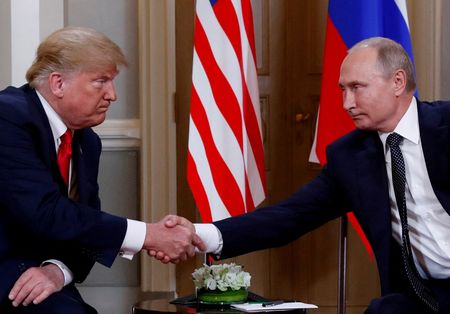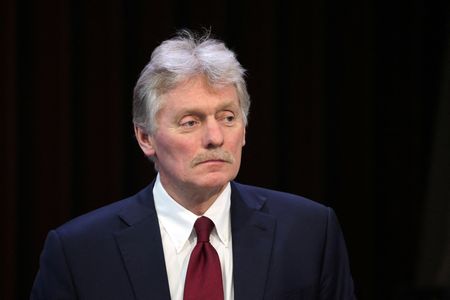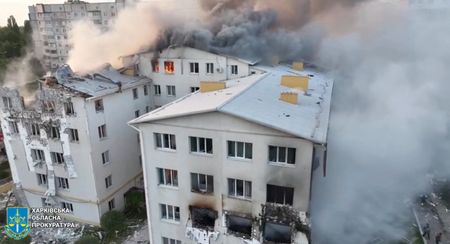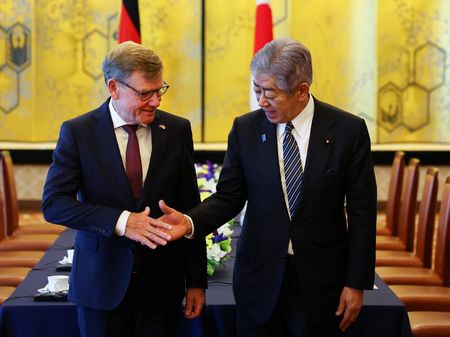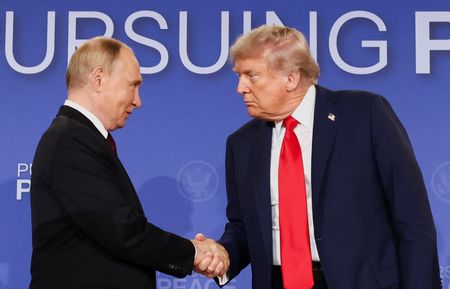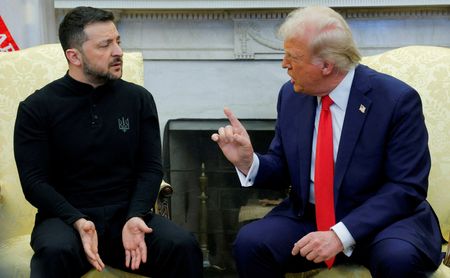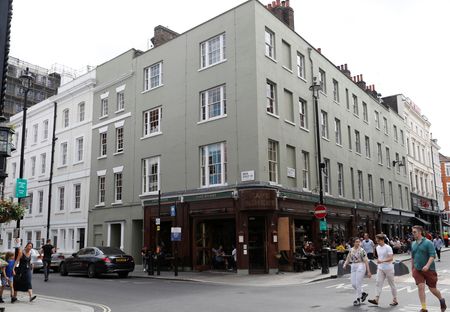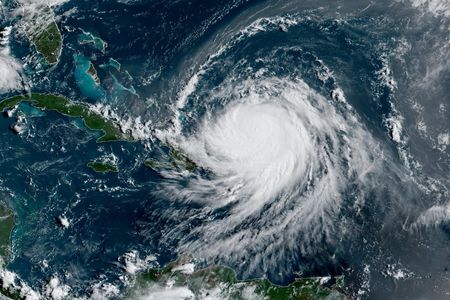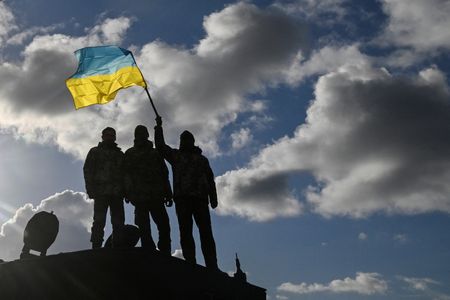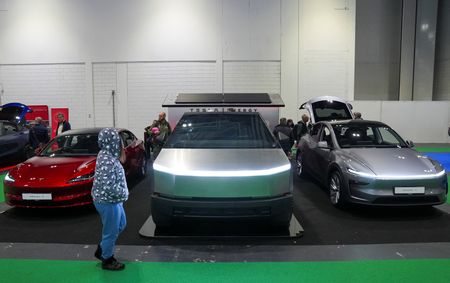By Guy Faulconbridge and Lucy Papachristou
MOSCOW (Reuters) – Russian President Vladimir Putin and U.S. President Donald Trump could meet this month, although the first face-to-face encounter between a Russian and a U.S. leader since 2021 could take longer to prepare, the Kremlin said on Wednesday.
Trump said on Tuesday he would probably meet Putin this month and dismissed Ukraine’s concern about being left out of U.S.-Russian talks in Saudi Arabia, while suggesting Kyiv could have reached a deal with Russia earlier.
Kremlin spokesman Dmitry Peskov said that the meeting in Riyadh was focused mostly on Russian-U.S. bilateral ties but that it was a “very, very important step” towards reaching a settlement on the Ukraine war, nearing the end of its third year.
“But this is the first step… Naturally, it’s impossible to fix everything in one day or a week. There is a long way to go,” Peskov said.
Asked if a meeting between Putin and Trump could take place this month, Peskov was quoted by Interfax as saying: “Possibly. And possibly not.”
Putin and Trump’s predecessor Joe Biden held a summit in Geneva in June 2021. That was the most recent time a U.S. and Russian leader met face to face, though Biden and Putin had a call in February 2022 and messages were passed via intermediaries.
Trump has upended Western policy on Russia and Ukraine, ordering talks with Russia without Ukraine or European powers, speaking to Putin, and talking about bringing down the price of oil – of which Russia is a major exporter.
Trump says he wants to end the war and that he thinks Putin wants to do a deal. But he has yet to spell out his plan for halting a conflict that has left swathes of Ukraine destroyed, killed or injured hundreds of thousands of people and raised fears of a direct confrontation between Russia and the United States, the world’s two biggest nuclear powers.
The talks in Riyadh were the first that the U.S. and Russia have held to seek an end to the war, the deadliest in Europe since World War Two.
No Ukrainian or European officials were invited. Kyiv has said it will not accept any deal imposed without its consent.
The conflict in eastern Ukraine began in 2014 after a Russia-friendly president was toppled in Ukraine’s Maidan Revolution and Russia annexed Crimea, with Russian-backed separatist forces fighting Ukraine’s armed forces.
In 2022, Putin sent his army into Ukraine in what he called a “special military operation”. He said it was needed to protect Russian-speakers in Ukraine and counter what he said was a grave threat to Russia from potential Ukrainian membership of NATO.
Ukraine and the West cast the war as an imperial-style land grab that threatens European security, and say that Russia could go further and attack NATO one day. Russia dismisses such claims as nonsense.
(Reporting by Reuters; Writing by Guy Faulconbridge and Lucy Papachristou; editing by Mark Trevelyan)

